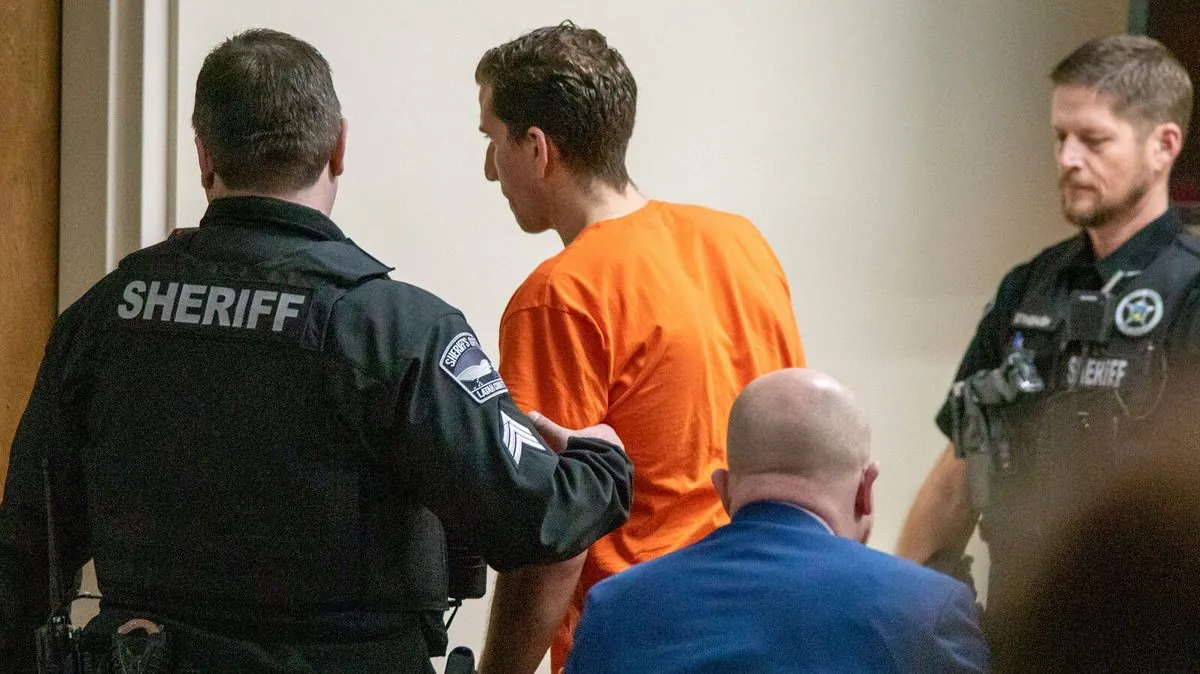Georgia Father Charged in School Shooting: A Legal Shift?
Georgia prosecutors charge a father for his son's school shooting, echoing a Michigan case. This move may signal a change in how the justice system addresses gun owners' negligence in such incidents.

In a significant legal development, prosecutors in Georgia have charged Colin Gray, the father of a 14-year-old accused of a deadly school shooting, with second-degree murder. This decision comes less than two days after the tragic incident at Apalachee High, where two students and two teachers lost their lives.
The charges against Gray are unprecedented in their severity for a parent of an alleged school shooter. This case bears striking similarities to a recent Michigan prosecution, where Jennifer and James Crumbley became the first parents convicted of homicide for their son's school shooting.

The Georgia case may indicate a shift in how the justice system addresses gun owners' negligence in school shootings. This change is occurring despite the absence of safe storage laws in both Michigan and Georgia, which typically require gun owners to secure their firearms properly.
"I'm not trying to send a message. I'm just trying to use the tools in my arsenal to prosecute people for the crimes they commit."
Smith's understated approach contrasts with the more outspoken stance of Michigan prosecutor Karen McDonald. However, both cases reflect a growing frustration with school shootings across the political spectrum. Since 2018, there have been 207 shootings at K-12 schools in the United States, resulting in 95 fatalities and 216 injuries.
Legal experts note that these cases face significant challenges. Prosecutors must prove "gross negligence" or "negligent cruelty," which goes beyond mere carelessness. The absence of safe storage laws in both states further complicates the legal landscape.
The charges against Gray and the Crumbleys may represent a cultural shift, even in pro-gun regions. This change could be driven by public weariness with school shootings and a desire for accountability beyond the shooters themselves.
As these cases progress, they may reshape the legal approach to gun ownership responsibility and school safety. The outcomes could have far-reaching implications for gun owners and policymakers across the United States.


































